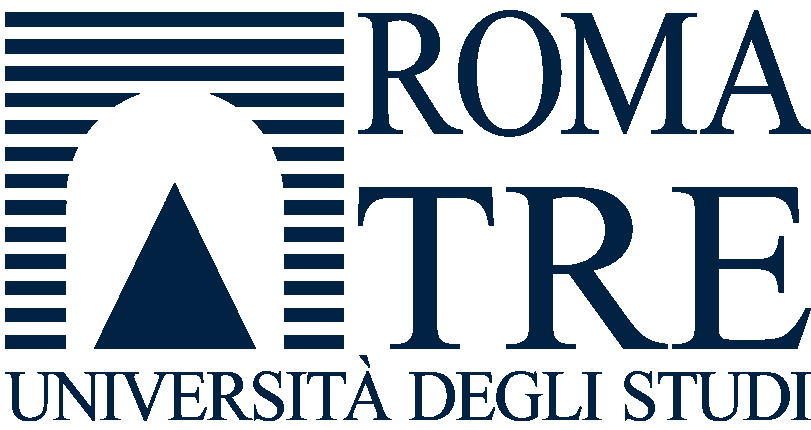Keynotes
WIFS 2015 features a special program of plenary talks on different aspects of information forensics and security. The presentations will be delivered in plenary sessions just after lunchtime in the Aula Magna.
Smoking Blocks - Fighting and Preventing Crime with Virtual Currencies (November 17)
Prof. Rainer Böhme (Institute of Computer Science, Universität Innsbruck, Austria).
Privacy and Security in the Genomic Era (November 18)
Prof. Jean-Pierre Hubaux (EPFL, Lausanne, Switzerland).
Dealing with noisy data in biometrics and PUFs (November 19)
Prof. Boris Škorić (Department of Mathematics and Computer Science, Technische Universiteit Eindhoven, The Netherlands).
More information on each keynote is given hereafter
Smoking Blocks - Fighting and Preventing Crime with Virtual Currencies
The raise of cryptographic currencies, such as Bitcoin, has arguably benefited from early adoption by criminals who helped to reach critical mass. In this talk I summarize our research at the intersection of cryptographic currencies and cybercrime. I present approaches to block chain forensics, taking into account the anonymization techniques currently in use, and outline a prevention strategy that might deter criminal use without substantially affecting the potential of legitimate applications of this innovative technology.
 Rainer Böhme is Professor of Security and Privacy at the Institute of Computer Science, Universität Innsbruck, Austria. A common thread in his scientific work is the interdisciplinary approach to solving exigent problems in information security and privacy, specifically concerning cyber risk, digital forensics, cyber crime, and crypto finance. Prior affiliations in his academic career include TU Dresden and Westfälische Wilhelms-Universität Münster (both in Germany) as well as the International Computer Science Institute in Berkeley, California.
Rainer Böhme is Professor of Security and Privacy at the Institute of Computer Science, Universität Innsbruck, Austria. A common thread in his scientific work is the interdisciplinary approach to solving exigent problems in information security and privacy, specifically concerning cyber risk, digital forensics, cyber crime, and crypto finance. Prior affiliations in his academic career include TU Dresden and Westfälische Wilhelms-Universität Münster (both in Germany) as well as the International Computer Science Institute in Berkeley, California.
Privacy and Security in the Genomic Era
Prof. Jean-Pierre Hubaux (EPFL, Lausanne, Switzerland)
Genome sequencing technology has advanced at a rapid pace and it is now possible to generate highly detailed genotypes inexpensively. The collection and analysis of such data has the potential to support various applications, including personalized medical services. The benefits of the genomics revolution are trumpeted by the biomedical community. Yet, the increased availability of such data has major implications for personal privacy and security, notably because the genome has certain essential features, which include (i) an association with traits and certain diseases, (ii) identification capability (e.g., forensics), and (iii) revelation of family relationships. Moreover, direct-to-consumer DNA testing increases the likelihood that genome data will be made available in less regulated environments, such as the Internet and for-profit companies. The problem of genome data privacy thus resides at the crossroads of computer science, medicine, and public policy. While the computer scientists have addressed data privacy for various data types, there has been less attention dedicated to genomic data. In this talk, we will introduce some basic knowledge on genomics and summarize the main challenges on the front of privacy and security. We will then explain the implications of the laws of heredity on kin genome privacy and provide an overview of the envisioned protection techniques relying notably on homomorphic and honey encryption. More information about genome privacy and security can be found at: https://genomeprivacy.org
 Jean-Pierre Hubaux is a full professor at EPFL. Through his research, he contributes to laying and developing the tools to protect privacy in tomorrow's hyper-connected world. He focuses notably on data protection and on network privacy and security. He also studied privacy and security mechanisms (especially for mobile networks) in the presence of selfish players. He pioneered the areas of wireless network security, secure vehicular communications, and genomic privacy. He was an Associate Editor (AE) of IEEE Transactions on Mobile Computing and is an AE of Foundations and Trends in Privacy and Security. He is a Fellow of both IEEE and ACM. Since 2007, he has been one of the seven commissioners of the Swiss FCC. He was recently appointed to the “Information Security Task Force”, set up by the Swiss federal government. He is also a member of the “Genomics” task force set up by the Cantonal Ministry of Health and of the scientific advisory board of Sophia Genetics. More about him can be found here: http://people.epfl.ch/jean-pierre.hubaux
Jean-Pierre Hubaux is a full professor at EPFL. Through his research, he contributes to laying and developing the tools to protect privacy in tomorrow's hyper-connected world. He focuses notably on data protection and on network privacy and security. He also studied privacy and security mechanisms (especially for mobile networks) in the presence of selfish players. He pioneered the areas of wireless network security, secure vehicular communications, and genomic privacy. He was an Associate Editor (AE) of IEEE Transactions on Mobile Computing and is an AE of Foundations and Trends in Privacy and Security. He is a Fellow of both IEEE and ACM. Since 2007, he has been one of the seven commissioners of the Swiss FCC. He was recently appointed to the “Information Security Task Force”, set up by the Swiss federal government. He is also a member of the “Genomics” task force set up by the Cantonal Ministry of Health and of the scientific advisory board of Sophia Genetics. More about him can be found here: http://people.epfl.ch/jean-pierre.hubaux
Dealing with noisy data in biometrics and PUFs
Biometrics and Physical Unclonable Functions (PUFs) have a lot in common. They require measurement of a physical system, signal processing, and a secure way to obtain robust bit strings from noisy data. Secure error correction is usually done by applying a Fuzzy Extractor or a Secure Sketch, algorithms collectively known as Helper Data Schemes. This talk gives a personal view on recent developments and open challenges regarding the design of Helper Data Schemes, touching on security/privacy performance as well as practicality.
 Boris Skoric received a PhD in theoretical physics from the University of Amsterdam, the Netherlands, in 1999. From 1999 to 2008 he was a research scientist at Philips Research, working first on display physics and later on security topics. In 2008 he joined the department of Mathematics and Computer Science at Eindhoven University of Technology, the Netherlands, as assistant professor. His research interests include biometrics, PUFs, traitor tracing, information theory, subjective logic, and the use of quantum physics for security.
Boris Skoric received a PhD in theoretical physics from the University of Amsterdam, the Netherlands, in 1999. From 1999 to 2008 he was a research scientist at Philips Research, working first on display physics and later on security topics. In 2008 he joined the department of Mathematics and Computer Science at Eindhoven University of Technology, the Netherlands, as assistant professor. His research interests include biometrics, PUFs, traitor tracing, information theory, subjective logic, and the use of quantum physics for security.


